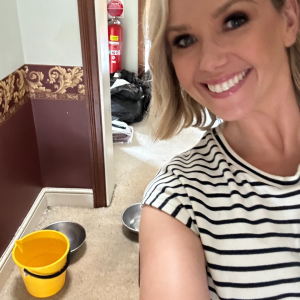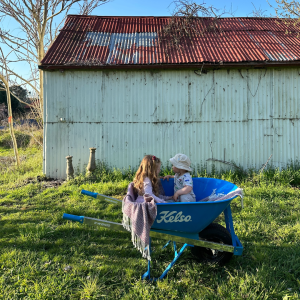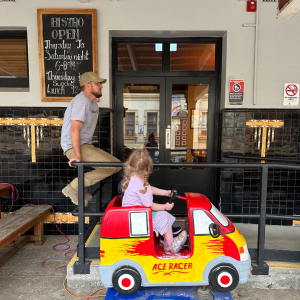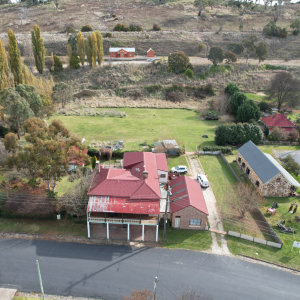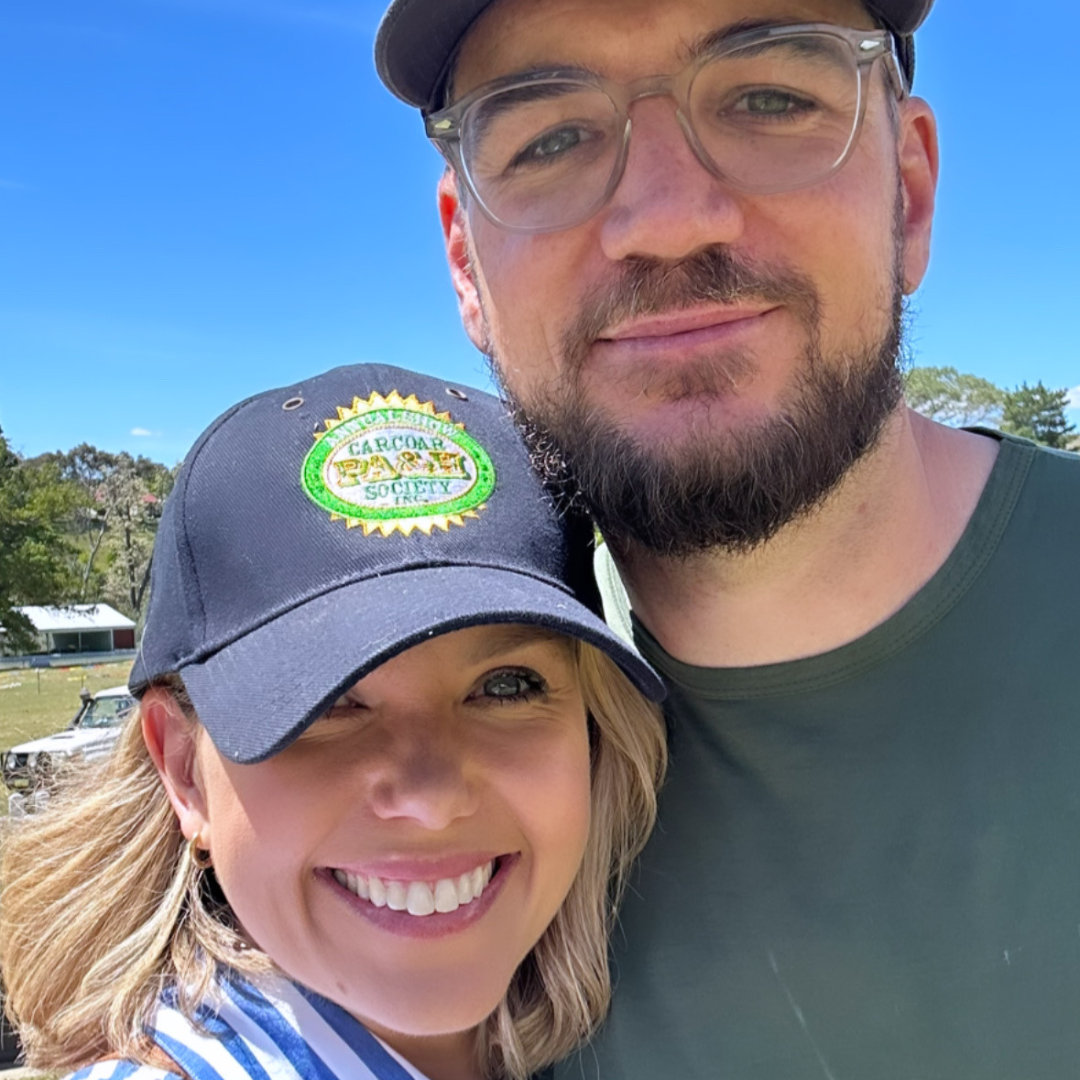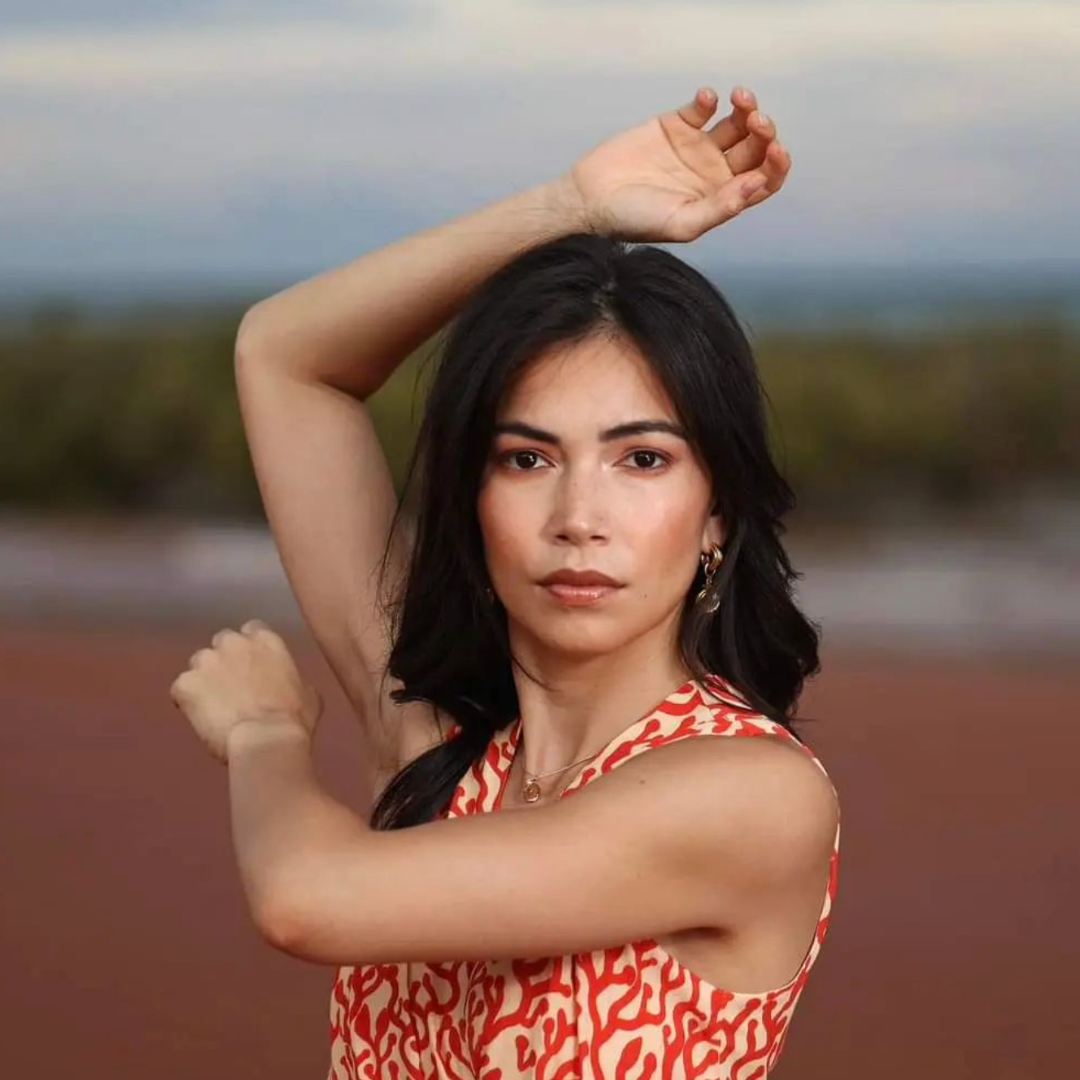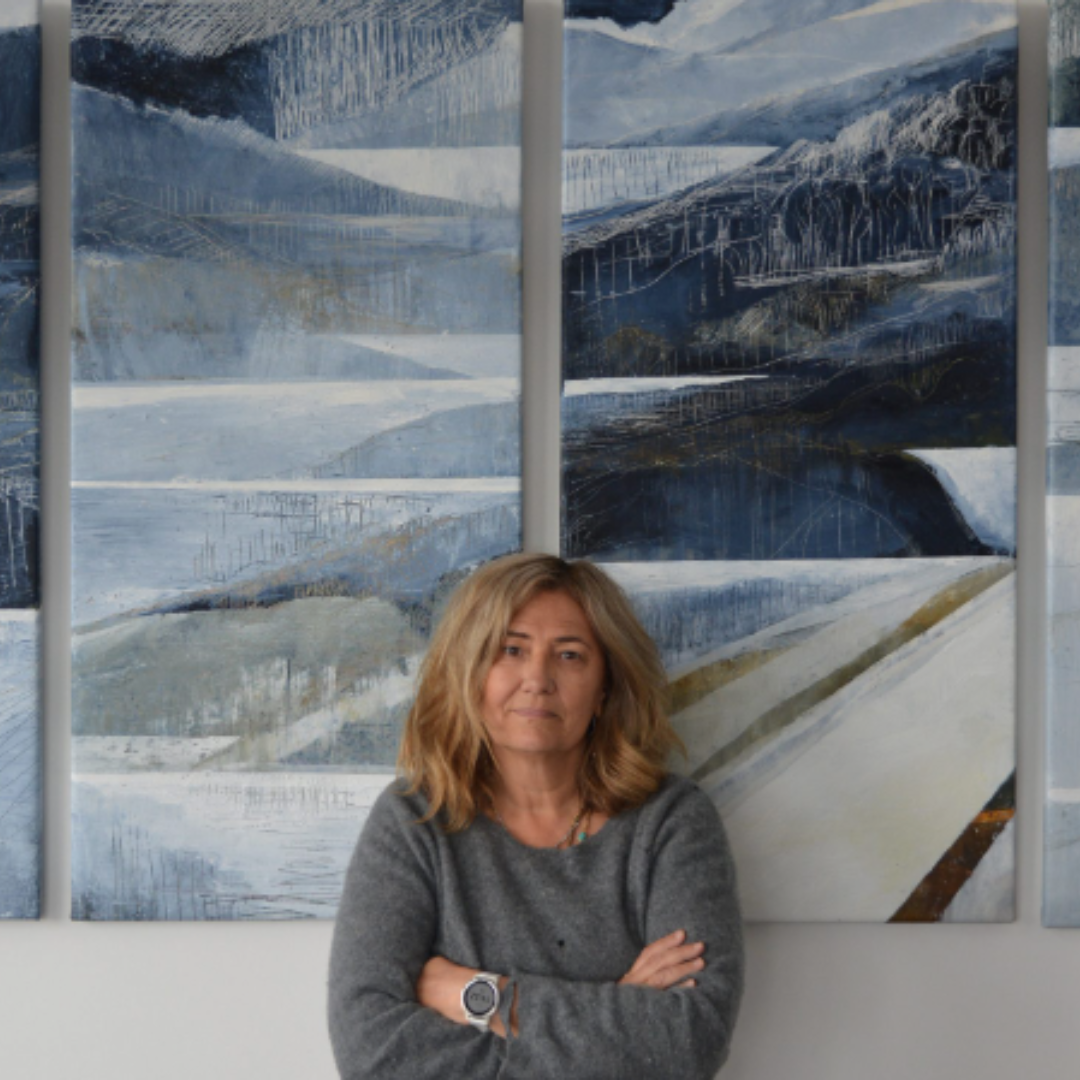[00:00]
And now I am so excited to get to talk to Edwina and Neil Australia’s favorite Power couple who are on the stage here. Now, we start the podcast usually by saying to our guests Edwina and Neil.
[00:15]
You moved where?
[00:19]
car core
[00:21]
You say like it’s a question mark we move to carport in the Central West of New South Wales who just bought an old guest house to turn into a boutique hotel as you do
[00:31]
as you do. So this is a great story in Vision. I know all of us have driven down those main drags seen counted how many wonderful country pubs there are not many of us probably have thought. Well, maybe we have thought by one, but then we never actually followed through with that idea and the two of you have so I want to find out a whole bunch about this story and Adventure that you’ve undertaken and I first want to go right back to the start and find out where you grew up.
[01:00]
And what your connection is with regional Australia, and I also want you to tell us a double-barreled question a big note, but I want to combine these because you’ve both got such fascinating careers. I want to find out how your career has been shaped by where you’ve lived as well.
[01:16]
It’s very rare that I get to speak first in our family. So.
[01:21]
Thrilled for the opportunity this in my wedding day.
[01:26]
So I grew up in Lithgow. I’m very very proud of that and my father was a coal miner and Mum was a nurse and you know family of four kids and went in to baptist the finished my schooling gotten a little bit of trouble in Lithgow from being on asked so when I’m just standing there and they sorted me out on the hill.
[01:47]
and then went to Sydney I was you know obsessed with riding as a kid and obsessed with words and you know went to Sydney and study journalism there and it’s kind of
[01:57]
my
[01:59]
my story
[02:00]
And I was born in whyalla in country South Australia mining town where my dad worked at the steelworks. And when I was five we moved to Sydney where my mum’s family were and when I was nine, I moved to Tokyo and lived in Malaysia after that but came back to boarding school when I was in year eight. And so a lot of my friends from the country from that experience. I went to UNI Ironically in Bathurst so closer to Neil but we joked that if we both done journalism at bath as we’d never be married, it’s good time about this by the way, looking for University in terms of the way. My career has shaped most recent decision is that I work for channel 7 Sunrise program at the moment and it worked for channel 7 for over 20 years and at a point in my career. I had the most amazing job where I was paid to travel around Australia so I can guarantee that. I’ve been to every town that every person in this room is wrong. We did a 40,000 kilometer lap of the map of over one year where we
[03:00]
Just drove constantly through Regional Australia, which was just the most amazing experience, you know, just just camping on, you know under the stars to to five-star accommodation to staying in dongers behind pubs. It was just an truly immersive wonderful working experience that didn’t feel like working. And so I think Neil and I met when we were working in radio in Sydney, which is which is prior to to that job, but I think it
[03:31]
I don’t know just just gave me a love of the regions and I could certainly see that you know, when I when I fell in love with Neil how much it meant to him to be from the country.
[03:42]
That’s really lovely and it’s nice and we talked to a couple because obviously if you’re a bit of a team there is a bit of thinking that needs to go into the move because it’s not someone on their Sally solo just picking up and going into another place. You got to chat it through make sure you’re all on the same page and it’s always interesting as well the context, you know, you grew up in the Region’s so interesting that you’re both journalists and Neil your career is really interesting as well. Obviously, you worked at Twitter extensively and till Elon cut the entire. Well, not the entire but a large proportion of the workforce and creative and working the media you’ve flipped.
[04:18]
Your situation on its head and we love unconventional. Let’s remember that the regions are not Bland and vanilla and dust and dirt. Like we’re highly colorful sexy kooky unpredictable and unconventional unlike some of our other movers who have moved together. You’ve got a bit of an unconventional situation where Neil has moved and Edwina you’re still living in Sydney. So you’re kind of one foot in each Camp going up there on the weekends and so forth but to get to that decision as a unit
[04:48]
What was the turning point it was?
[04:50]
a fight
[04:51]
So it’s interesting you say it’s good to talk to a couple. Well this could get really
[04:55]
this is actually the first time that was broken now openly in front of these lovely
[05:02]
people.
[05:05]
No, well, we it was New Year’s Day.
[05:08]
This is new. This is new to Neil did have a big fight and Neil said to me you’re living your dream, but I’m not living mine and it planted a seed I think more so in me that he was right. You know he
[05:25]
As I said have always has always loved the country.
[05:29]
We’d found ourselves in Sydney always living on a main road which he hated the noise of the city just drove him nuts. He had developed chronic fatigue which kind of overtook our lives and I think it just made us think about the life that we wanted for ourselves and also for our kids kind of in the future too. And yeah, I think I think that’s part of the conversation and then finally enough we’re actually staying at the beautiful wilgus station in Bathurst with friends and we heard from mayor’s earlier on as part of this summer and Hamish is here too and they the most incredible property just outside of Bathurst and
[06:08]
Not only a converted sharing but this amazing heart where sheep graze on top of it. And then you can walk through the bush and you get to this water hole and you can swim with mates and I walked down there with with two of my friends and we sort of left the kids back at the sharing Shadow and it was just so so magic and that very same weekend. We went well, we just Googled really because the local pub that we saw for sale early had already sold, which was probably a blessing but we googled other
[06:37]
Properties in the area as many people do and we found this this guest house that we ended up buying so as very much being there and having that experience and appreciating with our kids and our friends kids that made a sky will this could be possible for us too. And then yeah, we teed up to see the property on the Sunday morning didn’t we went and had a look?
[07:00]
Yeah 100% So we basically we don’t drive by the night before and yes, and and I was trying to coax a Dwayne Irene. I’m like, well, we’re going out there we might as well kind of just you know, tear up, you know a walk through and she was adamant know just driving by so we drove we drove by and then we didn’t really speak that much in the car on the way back. We were just sort of focused on on getting back to to wilgus station and
[07:27]
probably seen the Frozen
[07:28]
probably listen to Frozen with the kids in the back also personal fans and we got back there and I started working on the barbecue and and my phone rang and it was the owners of this place called Steakhouse and they said yeah, you know, we’re happy to have you through tomorrow and I was like sure yeah love to come through. So it’s doing it obviously submitted an online inquiry. Well, I was putting the snags on the barbecue and and we went out there the next morning and and walked through and I think we spent
[07:58]
15 seconds in the place before we looked at each other and just knew that that was it. It’s
[08:04]
probably Fortune to be only spent 15 seconds because
[08:08]
I would have made that choice.
[08:10]
Other but there are a few contributing factors. So we years before seven years ago. We bought a farm out near Lithgow where Wendy deals from called Miranda which we run as a boutique accommodation. So a few things about that one. It’s always booked out. So we knew there was a market for accommodation in the area to we had the same feeling arriving at around her as we had arriving in car core and seeing this place and three. I can’t remember because
[08:37]
we’ve got two kids and they’re under three and we just we have no idea where we are, right?
[08:47]
Now the third the third thing was like many people we were spending an absolute fortune on a mortgage in Sydney and we were just pouring money down the drain and we said to each other if we’re going to spend the money. Let’s build something for ourselves and our future and for our family.
[09:05]
And let’s just not give it all to the bank. So that was a huge part of the reason. So within weeks we sold our house in Sydney and made the call to buy
[09:16]
Steakhouse.
[09:18]
It’s a great story and I do think you’re a power couple because you obviously look like a power couple and 12 volts. Maybe I don’t know. I did read Neil that you actually grew a beard when you moved so it’s part of a Rebrand. I don’t know how well it’s going.
[09:33]
I don’t know how well it’s going to
[09:35]
get the heating working. So I think it was also an insulation
[09:38]
approach but it’s extraordinary that you’ve got, you know careers that are nine to five ish. And then you’ve also got this side hustle which is flipping places and and running them as a business, which is a lot of work. What is it like to be in your situation and work together and make this kind of thing work because it all sounds very glossy on the surface, but we know what home remedies are like talk us through what you do to make it work working together you can
[10:09]
I I think I think that’s just I think he kind of see how it works. You know, you just be differential and realize who the
[10:18]
Hear the bosses know I think we’re both very organized people which I think helps. So we you know, we use a lot of software. So we have slack which is normally a workplace app. We’ve been running that for years. Like everybody’s got a channel the dogs got a channel. We had a winning Channel every kid has a channel so it kind of allows us to keep the business space the business space and then we try not to let that, you know lead into our personal time together, but I guess we’ve always pretty much had an unconventional relationship like at the beginning when we first started dating when it was traveling six days out of seven, I think at that stage. I was working at the ABC and head of social as head of social media. So I was working pretty long hours myself, and you know, we really only had
[11:07]
Pretty much Sundays together. So we’ve always had a pretty unconventional relationships. So I think we just we just kind of keep rolling but this this has been a challenge. I don’t want to sort of make it sound like it’s been easy, I think.
[11:21]
Firstly adjusting to the central West Winters 20 Summers and 20. Sydney Winters have made me very soft. I yeah, it was wearing 15 layers outside. So that was an adjustment but I think being away from the children in particular Molly is three and a half now and and Tom is one and a half and I think that’s been been difficult. But yeah, otherwise, I think you know, we we genuinely love renovating which I know makes us odd.
[11:50]
And I think we’re just kind of up for a challenge. I don’t we just really up for anything and
[11:55]
you know, we love solving problems and that’s great because we’ve got a lot of them to be on us, so
[12:01]
heaven,
[12:01]
and I think
[12:04]
it’s harder for Neil to be away from the kids to be honest from an emotional perspective.
[12:11]
I think it works because I don’t have a nine to five job. I have a 3 a.m. To 11 a.m. Job so I can get up at 3 a.m. I don’t have to be at work till 4. So I do work before I go I you know clean the house before I go. I do all that kind of domestic stuff before I go to work and then when I’m at work people aren’t at work yet. So you can kind of get a jump on on emailing and correspondence and then you know, I have the day at home with kids and then can kind of reply to people after the kids go to bed. So that could unconventional work hours sort of help slack is as Neil mentioned helps and I think the most common question I get asked is how do you do it? All the answer is I don’t you know, like we have a nanny who thankfully agreed to move in with us an amazing.
[12:58]
An amazing woman called Meg who’s in Warren in also from Far West New South Wales, and she’s just been amazing. I wouldn’t be able to do without her. We had spaghetti bolognese three times a week at least,
[13:09]
you
[13:11]
know, there’s a lot of things that fall by the wayside, but I think both of us recognized that we’re building something really exciting together and something really exciting for the community as well. So yes, there are some personal sacrifices, but overwhelmingly we feel in our bones that we’ve made the right decision.
[13:27]
Thanks for sharing that because I think one of the things that people love about the podcast and like Loretta was saying that lived experience and the things you’re talking about. There are a lot of people in our millions of subscribers globally listening that actually do take good ideas from the people that we’re talking to and I think they’re very practical things that you’re implementing to make it work. What are some of the things that have been like a surprise to you about the regions since going back now,
[13:57]
When we first went for the Handover of the property and the crown family who owned the place at the time had reached out to us and said look.
[14:06]
There’s a couple of people in town that are kind of interested in meeting you so we’ll kind of go through the boiler which I still haven’t got going and we’ll also meet a couple of people from the community and there’s a 33 seat Cafe at the back. It was Oak house and I work in those 50 people there. Yeah, everyone bought a plate that was speeches and I just was kind of in shock like like how invested people were and how excited they were. I mean, we sort of thought that we just sort of trundle into town and under the cover of darkness and we do a renovation and we relaunch the business. But yeah the investment from the community I think and how much they care and how like, we’re just being absolutely hugged to death out there.
[14:49]
Also, we’re joining a rising tide, you know, we picked car Corps for a reason and that there’s an amazing.
[14:57]
Australia wide, you know, well known restaurant called antiqua Australis that has put car Corps on the map as a regional destination is a beautiful homewares store called tamale again has made car chord destination. There’s a great you know, there’s a fantastic vintage store as well. So, you know, there are things that were already very much going for that area. Matt Moran’s building a pub 40 minutes away serving the most amazing food. It’s 40 minutes in the other direction from Orange. So we very much a part of a rising tide in that Central West Region. So with out all of that already going on and without the region being so Dynamic and so many people moving out. There’s no way we would have made that decision and I remember going out to to cover the flooding in Central West New South Wales for work, and I went to my friend’s housewarming and her name’s Peep and she runs the most amazing homewares in fashion store in Orange called the Sonic and jumbled and she
[15:57]
Had a housewarming at her house overlooking the dam and there would have been.
[16:01]
50 people there our age and every single one of them our ages 40 every single one of them was doing something.
[16:10]
Incredibly creative and exciting and dynamic and a lot of them had moved from the city in a totally pivoted career paths and I just remember leaving that housewarming thinking wow, like this is such a great town such a great region and and we are very much following in the wake of all those people who’ve made that decision already.
[16:31]
I love that you mentioned the work that peeps doing
[16:34]
and orange as a region as a place as well because we mention that in season two when we talk to Kayla who was a nurse from Sydney home moved out to Orange and she actually has lent into her true calling which is being an artist and she says that the confidence that she gained was having some Works put in jumbled and that and she got a mentorship and that really kicked her on her way and she never had that confidence in the city, but she said the local community rallied around her and now she’s actually able to pursue what she ultimately always wanted to
[17:06]
Think for us it’s a Serendipity, you know, like I learned it in boarding school in year 8 in Sydney and piped turned out to be my best friend. So, you know, we have been friends for 30 years Neil went to school in Stannis. He comes from from left going Bathurst, you know our makes from uni are the local principal or the local school. We’ve got a mate who’s a builder there who I went to you went to school with I went to UNI with his brother, you know, there’s all those kinds of connections already. So we very much feel part of that community. And as Neil said, it’s been a really we had a beautiful catch up with the with the previous owners of the of the building most recently in Orange and it was just lovely to make those connections and hear about the history and that means a lot to us as journalists to do that research and hear that history too. So to honor that history as part of this renovation is something we’re really excited about
[17:52]
to
[17:54]
It’s awesome. And I think as well the color and life that you talk to that that is in the Region’s there’s been a lot of chat over the past couple of days about Bridging the Gap within the city and in the last conversation here at the national Summit. We just heard about Regional kids being encouraged to go the city and then go back to the regions. But there’s also an argument that City people should be encouraged to go the regions and then maybe that could help with the skills on the ground. And as you were bringing into the community that go into and I think I’m very passionate about vibrant, you know story that we tell of the regions. I think that’s a big part of it. So it’s a great that you’re telling that story you’ve got kids as well that you mentioned before Molly and Tom. What is the experience of moving rightly been like for them? Look
[18:38]
I think for us as well. Like I had this almost Tom Sawyer kind of upbringing where I you know, grew up on a river in lisco, and you know, we had we were trout fishing and we were building Billy carts and tree houses and all of that stuff and
[18:54]
I just really wanted that for my kids and for our kids and I think for me like personally there was this moment where we’d always stop in. I always try and support Lithgow on any way that I can and we’d stop in for a coffee on on the way back to Sydney from baramba and Molly went into the local cafe. The only one open on the Main Street and she asked for water and the guy gave her some water out of Lithgow Valley Springs water and that he had the and she said is it sparkling? She was like two years old.
[19:23]
She didn’t grandpa has a soda stream. So we get a lot of sparkling at at Grandpa’s house to the point that now Molly has adapted the the words of wheels on the bus to grandma grandpa’s offered some sparkling. So like she’s really into the sparkling.
[19:38]
Yeah. Look at I think we we sort of realized that you know, the the upbringing that certainly I had in Lithgow was was honestly like storybooks staff and just really wanted that for the kids and they just absolute enthusiasts like they’re just pumped about
[19:53]
Everything pumped about the farm, you know pumped about the hotel. They just yeah, they just loved it.
[20:00]
and I went to change Molly’s daycare in Sydney because I thought she
[20:05]
was I thought that’s just so silly isn’t it? Like what I’m trying to find for them is is a life in the country and you know when we’re not there quite because we still separate our time but I feel like you know, they get enough of it to to really kind of impact their personalities and their upbringing which is lovely and I get it because the dirtiness and the getting close to Nature
[20:28]
is something that you obviously you earn for particularly when you’ve got it in your background, we’ve talked a bit as well about we get people off and on this podcast to pitch to others to City people about why they should move to the regions but there’s also that consideration that when you going into a new community, there’s an established community on the ground and sometimes there’s a bit of friction particularly with the amount of people that are moving and I think you present a really good example of people that are investing locally really getting in to build yourself within that and embed within that community.
[21:00]
Just before we wrap up because we want to ask some questions of the audience. I’d love you to give the pitch to your community about what you’re going to contribute and what valued you bring. Now that you are in the
[21:12]
Region’s. Well, it’s a hotel for guests But ultimately it’s for the community. It will change the town.
[21:18]
we know that because it will bring people it will bring more people than have come before and some people won’t like that because it’s a quiet town, but we know from already building a business in the bush in a community that you know, that is very much we moved into it that
[21:40]
it’s not a success unless the community comes along for the ride and that is both emotionally physically and financially know when we renovate we need to use local trades when we even have our plans. We need to consult the community run everything by them. And one of the big reasons why Neil moved out to car Corps ahead of even renovating and head of event and having any plans was because
[22:05]
It’s basically community relations, you know people pop in and they have a chat about what we’re doing and they give their feedback and what they want. So it’s very much for the community and it’s a big part of our decisions. For example, we know weddings will be profitable but we’d never have one every weekend because it’s right in the middle of town or piss people off. Right? So you have an allocated number of weddings every year you advertise those dates people know it might be noisy till 7 and then you move everyone onto the pub. We benefit the pub benefits the cafe benefits all the local businesses benefit. So I think that’s a huge part of our decision making process. There’s so many things that you don’t know about a community to live there. For example, I was in the post office this week and I said, we’re just about to renovate did we build do we build a post box? And she said no because it’s no postmen in town. You have to come to the post office to get your packages. So just let little things like that and and things we have to get used to like I went to the other day. I said, I would scrape a coffee before we drive to Canberra. I know it can’t get
[23:05]
A coffee till Thursday in car course so, you know, there’s a little things that are adjustment. So it’s a big adjustment for us and it’ll be a big adjustment for the town as well. It’s 300 people it’s small but the reason it’s so special is because they call it the town That Time Forgot and
[23:23]
Time is moving on.
[23:25]
But we would never want to lose what makes that community.
[23:30]
so special and why we fell in love with it, so that’s a big part of of our
[23:36]
process over the next 12 months
[23:38]
Yeah and look so once a week I go to millthorpe, which is the the town it’s like 15 20 minutes away. And it’s it’s considered to Kaka was often described as the next millthorpe and and if you speak to anybody in car called that is the last thing they want and that’s no disrespect to Milford, but they you know, they consider themselves to be unique and they are as a joint said, you know, it’s The Whole Town’s under a National Trust order. Every building is pretty much Heritage listed and there are families that are going back, you know.
[24:10]
Like hunts and notes, but very very long period of time so, you know, they have a deep investment in that area. So I literally get a mill thought once a week to have breakfast and I spend the entire time there thinking about how we preserve what is so incredibly unique about car core while sort of lifting hopefully lifting the community up a little and and ensuring that it leaves on into the future and continues to thrive
[24:39]
the most famous resident of
[24:41]
Coronado is Kurt Fernley the paralympian and after we went public on social media, which again is such an amazing resource for the abortion and can be such a positive way to connect.
[24:53]
Is I get this phone call you bought in khar Kor Curt’s got quite a distinctive voice and that’s probably not a great impression. But I was like hello. We had a great shot and he and he went to visit me. I wasn’t there but he went to visit and came past and I mean that’s a great example. I mean the most famous resident of car Corps is in a wheelchair. So accessibility is a big part of what we’ll be doing because you just can’t build something in car call without proper accessibility and you know, we’d love to have the Family Estate half the town of fernley’s by the way again a big part of it, but I think I was just thinking about last night after attending this amazing summer what I love so much about being in the country and I was at our farm this week and the stars were just unbelievable and I just you can see the stars and you have the time to look at them. I think is the overwhelming feeling I get what I’m outside the city and you never want to turn the lights on so bright and car called that you’d
[25:53]
That there as well.
[25:56]
It’s actually a very common thread that we have from guests on the series is that feeling of space and their sense of perspective within that space and then how that enables them to lean in and accept time as well. So it’s a really lovely way to wrap up. I feel do we have time for a burning question if we’ve got one. Oh we do. We’ve got a question. Yes,
[26:16]
obviously, you’ve both had very successful careers. What advice would you give to Country kids like you guys once were for following their dreams and making them come true?
[26:31]
First this is going well. Folie James. Look I
[26:37]
Don’t know. I I’ve always been quite instinctive. I think I haven’t necessarily had a plan. Yeah. I don’t know. I just kind of
[26:45]
I guess just take that first step and I think if I’d looked at where I am now and you know thought about that when I was 19 years old playing bad football and penrith with jono Wheaton who’s in the audience, you know, I never would have considered that I would have worked for Google or I would have worked for Twitter or that I would have, you know married a beautiful television presenter and had amazing kids all been a farmer for that matter. Yeah. I think just kind of take the first step fully and passions never feels like work and I think you’ll be surprised that where you went up.
[27:17]
and the real benefit for people who are making that choice now or leaving school now is you’ll have so many more careers than than we had, you know, we’ve both been journalists our entire life and sure this latest chapter is a very much a pivot but
[27:35]
Graduates now could have a dozen careers. So they actually do need to be risk-takers because they probably will need to change and be flexible and pursue new passions and pursue new careers throughout their lives and I always
[27:53]
Like the the quote that you know Lark is where hard work meets opportunity, you know, you make your own luck. And so if you work really hard at it you’ll eventually get there your path may not be straight, but you’ll you will reach your destination, but you just have to have tenacity and really kind of
[28:12]
puts par and kind of like work hard at Neil’s actually teaching it CSU at the moment and he teaches a chewed on a Tuesday and the kids in his class said drink and we might come to our class on a Tuesday to which he said I’m just can to her Barbie which is thank you for that quote. And I said no, but I’m there on a Friday to speak to some some.
[28:38]
Upcoming kind of graduates and I said if anyone can be bothered sticking around on a Friday, then I’ll meet with them, but I’m not coming on a Tuesday. So if you’re a turn-up on a Friday person you’ll go far.
[28:49]
That’s great advice. Thank you, Adrina.
[28:53]
I feel like this conversation is just a wonderful way to finish the national Summit which focused on Shifting The Gaze and I would really love to thank you Neil and Edwina for being so open and sharing so much. I also want to mention that Neil and Edwin are actually on holidays, and they’ve given up their time to join us. So that’s not Testament to your investment in the regions. I don’t know what he’s thank you all so
[29:16]
we never go on holidays.
[29:19]
That’s the only cat just you do have to spend your holidays working on your dreams.
